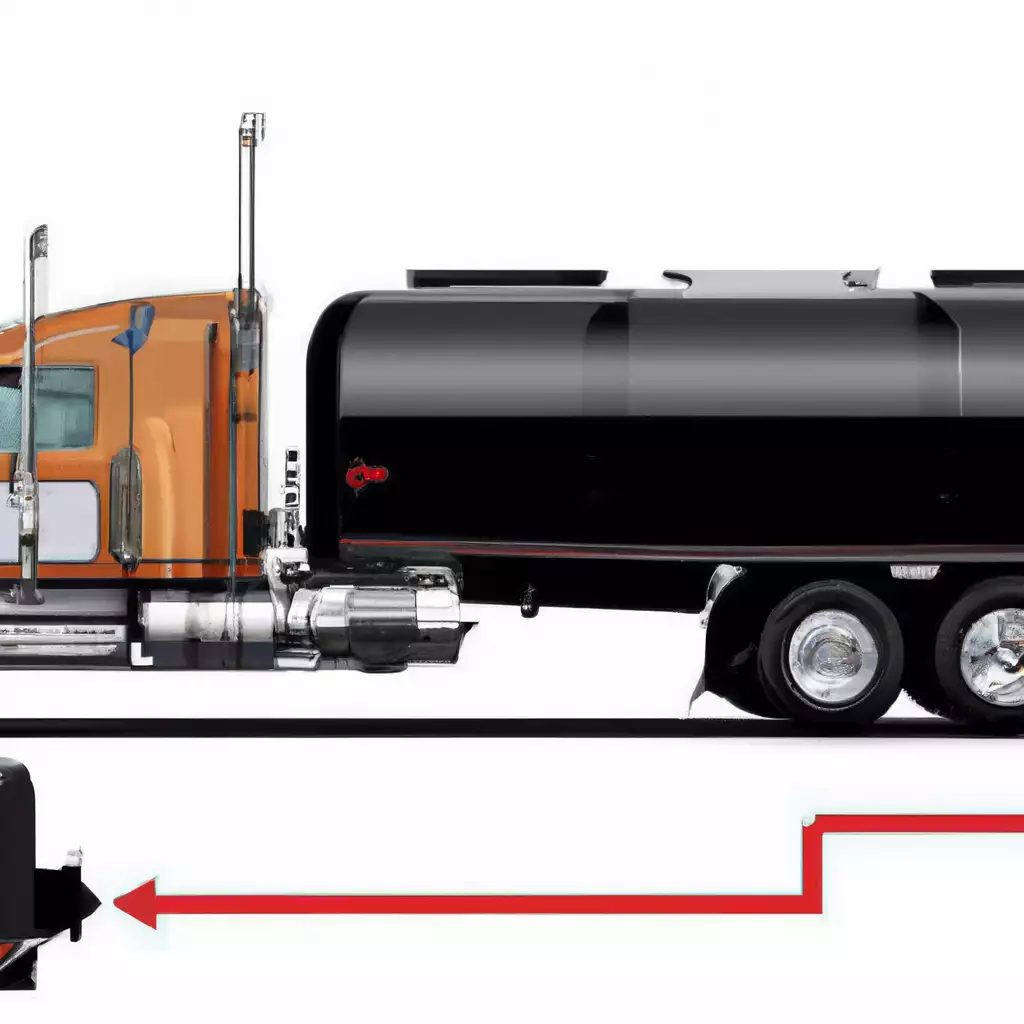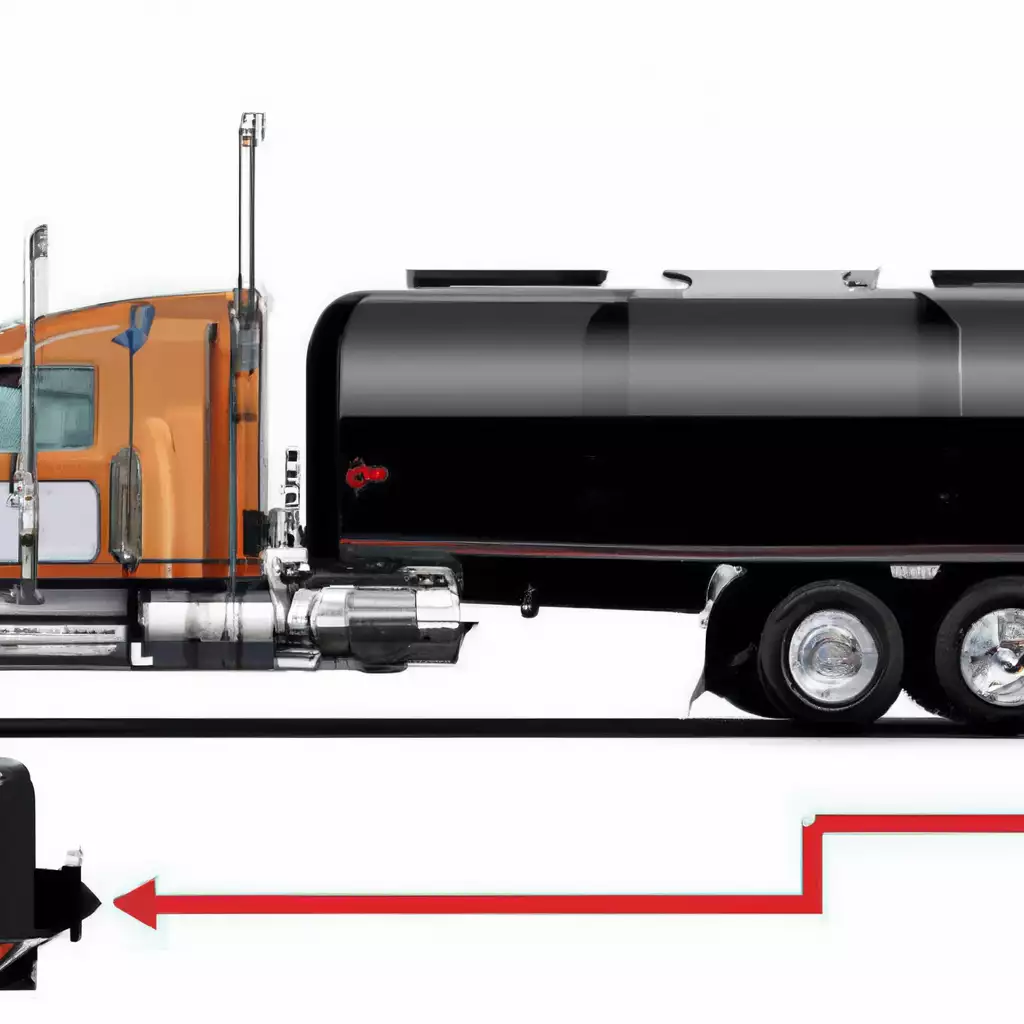In this article, you will explore the practicality of daily driving a diesel truck. As diesel trucks continue to gain popularity, understanding the viability of using one as your everyday vehicle becomes essential. This piece seeks to provide an insightful analysis of the advantages and challenges encompassing daily diesel truck driving and aims to equip you with the necessary knowledge to make an informed decision about whether it is a suitable option for your lifestyle.
Benefits of Daily Driving a Diesel Truck
Fuel Efficiency
One of the key advantages of daily driving a diesel truck is its fuel efficiency. Diesel engines are known for their ability to deliver better miles per gallon compared to their gasoline counterparts. This is due to the higher energy content of diesel fuel and the more efficient combustion process of diesel engines. As a result, you can expect to spend less on fuel when driving a diesel truck on a daily basis.
Torque and Towing Capacity
Diesel trucks are renowned for their impressive torque and towing capacity. The high-compression nature of diesel engines allows them to generate more torque, making them ideal for hauling heavy loads and towing trailers or other vehicles. If you frequently need to transport heavy cargo or engage in towing activities, a diesel truck provides the power and performance you require.
Durability and Longevity
Diesel engines are known for their durability and longevity. The robust construction and heavier components of diesel engines enable them to withstand the rigors of daily driving and heavy usage over time. The lower RPM range at which diesel engines operate also contributes to their longevity. With proper maintenance and care, a diesel truck can last for many years, making it a wise investment for daily driving.
Considerations for Daily Driving a Diesel Truck
Higher Purchase Cost
One of the considerations when daily driving a diesel truck is the higher upfront cost compared to gasoline trucks. Diesel trucks tend to be more expensive to purchase due to the higher cost of diesel engines and their associated technologies. However, it is important to consider the long-term benefits and lower operating costs that a diesel truck can provide.
Maintenance and Repair Expenses
Diesel trucks generally require more frequent and specialized maintenance compared to gasoline trucks. From oil changes to fuel filter replacements, the maintenance costs for a diesel truck can be higher. Additionally, repair expenses for diesel engines can be more costly due to their complexity. It is essential to factor in these ongoing expenses when considering daily driving a diesel truck.
Emissions and Environmental Impact
Diesel engines have traditionally been associated with higher emissions and a greater environmental impact compared to gasoline engines. However, modern diesel engines have made significant advancements in reducing emissions. Many diesel trucks now feature advanced emission control technologies, such as particulate filters and selective catalytic reduction systems, which help minimize their environmental impact. Nevertheless, it is important to consider the emissions and environmental implications of daily driving a diesel truck.
Noise and Vibration
Diesel engines tend to produce more noise and vibration compared to gasoline engines. While advancements in engine design and insulation materials have reduced these issues in modern diesel trucks, they may still be noticeable to some extent. If you prioritize a quiet and smooth driving experience, you may need to consider the potential noise and vibration associated with daily driving a diesel truck.
Availability of Fuel
Another consideration for daily driving a diesel truck is the availability of diesel fuel. While diesel fuel is generally widely available, there may be areas where it is less accessible compared to gasoline. It is important to consider the availability of diesel fuel in your area and along your regular driving routes to ensure that it is convenient for your daily driving needs.

Comparison with Gasoline Trucks
Fuel Efficiency
When comparing diesel trucks with gasoline trucks, one of the significant advantages of diesel trucks is their fuel efficiency. Diesel engines typically deliver better fuel economy, allowing you to go farther on a gallon of fuel. This can result in long-term savings on fuel costs, especially for daily driving.
Power and Performance
Diesel trucks are known for their superior power and performance compared to gasoline trucks. The high torque output of diesel engines provides stronger acceleration and towing capability, making them suitable for heavy-duty tasks. If you require excellent towing capacity or frequently engage in tasks that require high power, a diesel truck would be a preferable choice.
Cost of Ownership
While diesel trucks may have a higher purchase cost, they also tend to hold their value better over time. This can result in lower depreciation and greater resale value compared to gasoline trucks. Additionally, diesel engines often have a longer lifespan, reducing the need for costly engine replacements. When considering the overall cost of ownership, including fuel economy and potential resale value, a diesel truck can provide long-term financial benefits.
Choosing the Right Diesel Truck for Daily Driving
Weight Class and Size
When choosing a diesel truck for daily driving, consider the weight class and size that best suits your needs. Different weight classes offer varying towing and payload capacities. If you have specific requirements for hauling or towing, choose a truck that matches your needs without being unnecessarily oversized or underpowered for your daily driving habits.
Engine Power and Torque
The power and torque output of the diesel engine are critical considerations when selecting a truck for daily driving. Assess your driving needs and determine the horsepower and torque figures that align with your requirements. A higher torque rating will allow for easier acceleration and towing, providing better performance in various situations.
Transmission Type
The transmission type plays a role in the driving experience and fuel efficiency of a diesel truck. Consider whether you prefer a manual or automatic transmission. Automatic transmissions offer greater convenience and ease of operation, while manual transmissions provide more control over gear changes.
Interior Comfort and Features
Since you will be spending a considerable amount of time in your diesel truck, prioritize interior comfort and features. Consider factors such as seating comfort, cabin layout, noise insulation, and climate control systems. Features like touchscreen infotainment systems, advanced safety features, and connectivity options can enhance your daily driving experience.
Safety Features
Prioritize safety features when selecting a diesel truck for daily driving. Look for features such as electronic stability control, anti-lock braking systems, traction control, and advanced driver-assistance systems like lane departure warning and blind-spot monitoring. These features can significantly enhance the safety of your daily driving.

Tips for Daily Driving a Diesel Truck
Consider Traffic and Parking
When daily driving a diesel truck, be mindful of traffic conditions and parking spaces. Diesel trucks tend to be larger and require extra space to maneuver and park. Plan your routes and parking in advance to ensure you can navigate through congested areas and find appropriate parking spaces without difficulty.
Adapt to Size and Dimensions
Adjust your driving habits and techniques to accommodate the larger size and dimensions of a diesel truck. Take extra caution when changing lanes, turning, or parking. Be aware of your blind spots and use mirrors effectively. Give yourself more time and space when braking and accelerating to account for the increased weight and size of the truck.
Regular Maintenance and Servicing
To ensure optimal performance and longevity, adhere to the recommended maintenance schedule for your diesel truck. Regularly change the oil, fuel filters, air filters, and perform other necessary maintenance tasks. By properly maintaining your diesel truck, you can avoid potential breakdowns and costly repairs.
Drive Smoothly
Diesel engines rely on combustion pressure for optimum performance. To maximize fuel efficiency and reduce wear on the engine, drive smoothly and avoid aggressive acceleration or braking. Gradual acceleration and deceleration can also contribute to a more comfortable and enjoyable driving experience.
Follow Emission Standards
Ensure that your diesel truck complies with the applicable emission standards in your region. Keep up with any changes or updates to emission standards and take the necessary measures to ensure your diesel truck meets the requirements. Regularly inspect and maintain emission control devices and systems to minimize your environmental impact.
Regulations and Restrictions on Daily Driving Diesel Trucks
Emissions Standards and Testing
Different regions may have specific emissions standards for diesel trucks. Familiarize yourself with these standards and ensure that your diesel truck meets the requirements. Regular emissions testing may be required to ensure compliance, and failure to meet standards may result in penalties or restrictions on your daily driving.
Licensing and Permit Requirements
Certain jurisdictions may have additional licensing or permit requirements for driving diesel trucks, particularly those in higher weight classes. Check with your local department of motor vehicles or transportation authority to confirm if any additional permits or licenses are necessary for operating a diesel truck on a daily basis.
Urban Driving Restrictions
In heavily congested urban areas, there may be restrictions or regulations on driving diesel trucks. These restrictions are often implemented to reduce emissions and address air quality concerns. Research and understand any urban driving restrictions that may affect your daily driving routes.
Impact of Future Regulations
The regulations and restrictions on diesel trucks are subject to change as governments and environmental agencies continue to address emission concerns. Stay updated on any proposed or forthcoming regulations that may impact the daily driving of diesel trucks. Being aware of potential changes will allow you to plan accordingly and make informed decisions about daily driving a diesel truck.
Purchasing and Financing a Diesel Truck for Daily Driving
Budget Considerations
When purchasing a diesel truck for daily driving, consider your budget carefully. Diesel trucks tend to have a higher upfront cost compared to gasoline trucks. Determine your maximum budget and consider factors such as purchase price, insurance costs, fuel expenses, and ongoing maintenance and repair expenses. Ensure that you can comfortably afford the overall costs associated with daily driving a diesel truck.
New vs. Used Trucks
Decide whether you want to purchase a new or used diesel truck. New trucks generally come with the latest technology, warranties, and lower mileage. However, they also command a higher price. Used trucks offer cost savings but may require more maintenance and repairs. Consider your budget, desired features, and long-term plans when deciding between new and used diesel trucks.
Loan Options and Interest Rates
If you require financing for your diesel truck purchase, research loan options and interest rates to find the most favorable terms. Shop around for competitive rates and compare financing offers from different lenders. Consider factors such as down payment requirements, loan terms, and interest rates to ensure that the financing aligns with your needs and financial situation.
Insurance and Registration for Daily Driven Diesel Trucks
Insurance Rates and Coverages
Insurance rates for diesel trucks may differ from those of gasoline trucks. Factors such as the vehicle’s value, age, usage, and your driving history can affect insurance premiums. Research insurance providers and obtain quotes from multiple companies to find the coverage options that offer the best value for your daily driven diesel truck.
Registration Fees and Documentation
When registering a diesel truck for daily driving, be prepared for registration fees and required documentation. Check with your local department of motor vehicles to determine the specific fees and paperwork needed for registering a diesel truck. Ensure that you have all the necessary documents, such as proof of ownership, insurance, and emissions compliance, to complete the registration process smoothly.
Laws and Regulations
Familiarize yourself with the laws and regulations governing the operation of diesel trucks in your jurisdiction. Be aware of any restrictions, vehicle code requirements, or specific regulations that apply to daily driving a diesel truck. Adhering to these laws and regulations will not only ensure compliance but also contribute to a safe and hassle-free driving experience.
Personal Experiences of Daily Driving Diesel Trucks
Advantages and Disadvantages
Hearing firsthand experiences from individuals who daily drive diesel trucks can provide valuable insights. Some diesel truck owners may highlight the advantages of improved mileage, towing capability, and durability. However, others may share potential disadvantages, such as higher operating costs, maintenance requirements, or limitations in certain driving conditions. Consider these personal experiences to gain a well-rounded understanding of the pros and cons of daily driving a diesel truck.
Tips and Lessons Learned
Individuals who have daily driven diesel trucks may offer valuable tips and lessons learned from their experiences. These tips can cover a range of areas, such as fueling strategies, maintenance practices, driving techniques, or tricks for navigating specific driving conditions. Incorporating these tips into your daily driving routine can help optimize your diesel truck ownership experience.
Stories from Diesel Truck Owners
Engaging with diesel truck owners and listening to their stories can provide deeper insights into daily driving experiences. Owners may share anecdotes about memorable trips, notable challenges faced, or unique modifications made to their trucks. These stories can inspire, inform, and help you connect with a community of diesel truck owners who can offer ongoing support and advice.
Conclusion
Daily driving a diesel truck can offer numerous benefits, including improved fuel efficiency, greater torque and towing capacity, and enhanced durability and longevity. However, it is essential to consider factors such as the higher purchase cost, ongoing maintenance expenses, emissions and environmental impact, noise and vibration levels, and fuel availability. When compared to gasoline trucks, diesel trucks often offer better fuel efficiency, more power and performance, and long-term cost savings. Selecting the right diesel truck involves considering weight class and size, engine power and torque, transmission type, interior comfort and features, and safety features. Daily driving tips include adapting to traffic and parking challenges, adjusting driving habits to accommodate the truck’s size, and prioritizing regular maintenance and servicing. Being aware of regulations, restrictions, and future developments related to diesel trucks is crucial. The purchasing and financing process should consider budget, the choice between new and used trucks, and loan options and interest rates. Insurance and registration requirements, as well as compliance with laws and regulations, should be taken into account. Learning from personal experiences of daily driving diesel truck owners can provide valuable insights, tips, and lessons learned. Ultimately, daily driving a diesel truck requires careful consideration, but with the right preparation, it can offer a rewarding and practical driving experience.



